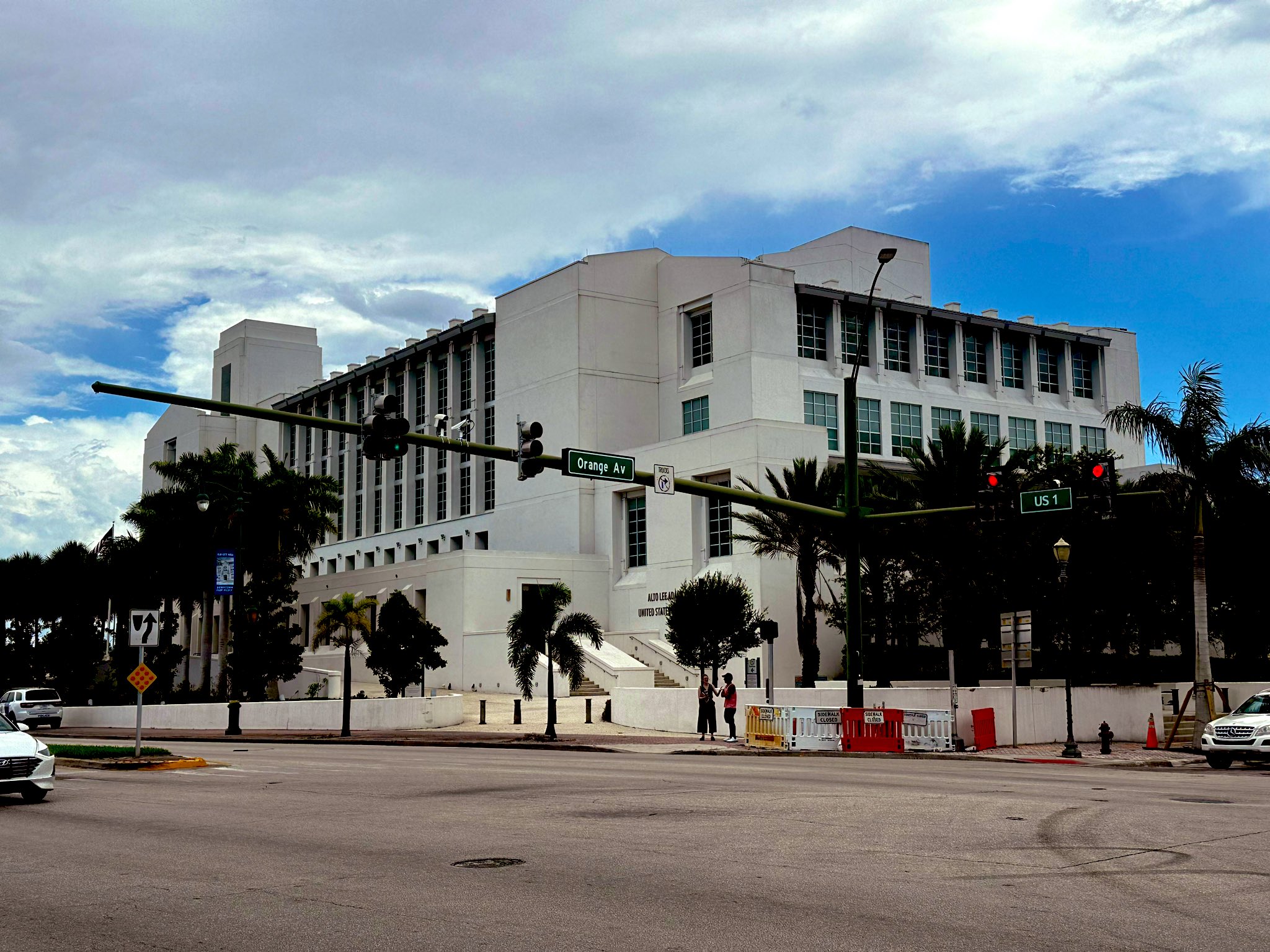Published by The Lawfare Institute
in Cooperation With

The Guardian reports that the Russian foreign ministry complained that “only the Syrian army has been observing the ceasefire regime, while the US-led ‘moderate opposition’ has been increasing the number of shellings of residential quarters.” The statement added that “it appears that the ‘verbal curtain’ of Washington is aimed at hiding the non-fulfilment of the US obligations.” The strained rhetoric comes as U.N.-chartered trucks, carrying much-needed supplies, remain bogged down in Turkey and unable to enter Aleppo because without a guarantee of security from Damascus.
The Associated Press adds that Russia has warned the United States to press the rebels to end their violations in order to prevent the situation from "spinning out of control." A top Russian military official, Lieutenant General Viktor Poznikhir, declared on Friday that Moscow was willing to extend the United States-Russia-brokered cease-fire for another 72 hours, but only if Washington clamps down on ceasefire violations by U.S.-backed rebels. Poznikhir said Russia had counted 144 violations of the truce by the rebels since the pact began on Monday.
Reuters reports that the Kremlin claims it is using the full extent of its influence to ensure that the Syrian army has fully implemented its side of the ceasefire agreement. A Russian spokesman, Dmitry Peskov, made these comments after rebels had complained that the Syrian army had not withdrawn from positions around the Castello Road, which leads into Aleppo and must be cleared for aid deliveries to commence. Peskov also added that the Syrian army began the process of clearing Castello Road on Thursday. The New York Times writes that the U.N. envoy to Syria, Staffan de Mistura, confirmed that the Syrian government is violating the terms of the truce by inhibiting aid deliveries into Aleppo.
At least 23 people, including nine children, were killed during airstrikes in Syria’s eastern province of Deir Ezzor, an area not included in the ceasefire. The British-based humanitarian watchdog, the Syrian Observatory for Human Rights, said it is difficult to ascertain which side was responsible for the strikes. The territory is under the Islamic State’s control, which makes the strikes permissible, but the casualties were mostly civilians. CNN has more.
The Washington Post reports that the Defense Department remains deeply skeptical of the ceasefire deal brokered by Secretary of State John Kerrywith Russian Foreign Minister Sergei Lavrov. According to high-level administration officials, Secretary of Defense Ash Carter was so reluctant to support the deal that he almost single-handedly delayed the truce with his repeated questions. But Kerry has defended the truce as Washington’s best opportunity to mitigate the bloodshed in Syria.
The Associated Press tells us that the chief of the Russian military’s general staff visited Turkey for talks with his counterpart about the situation in Syria. In a statement on Thursday, the Russian Defense Ministry said the meeting between Russia’s General Valery Gerasimov and Turkish General Hulusi Akar would help bridge the gap between the two countries’ assessments of the current situation in Syria and illuminate the measures necessary for upholding the ceasefire.
President Barack Obama is delaying a planned veto of a bill that would allow the families of victims of the Sept. 11 attacks to sue Saudi Arabia for any role in the plot, according to the New York Times. The White House hopes to tap into an unusual well of buyer’s remorse among senators who passed the measure unanimously in the spring. While the bill passed the House last week, an intense last-minute lobbying campaign from both the Saudi government and the White House has led some analysts to speculate that Obama could avoid a veto override. Critics of the bill claim that its passage could open the United States to a barrage of lawsuits from private citizens overseas.
The House of Representatives also voted to pass legislation that would temporarily halt the transfer of more detainees from the U.S. military detention facilities at Guantanamo Bay. The bill would bar the federal government from spending money on any Guantanamo prisoner transfer, implementing a transfer ban that would last end until the end of the calendar year or until a bill authorizing defense spending is signed into law. The Miami Herald has more.
David Ignatius writes in the Washington Post that, while the Cold War has ended, we are entering an era of cyberwar where the norms and rules of the game are not as well-defined. The Obama administration is split on how to respond to a recent spate of Russian cyberattacks, but officials recognize that Moscow has crossed a line that requires a direct retaliatory response.
A report released yesterday by the House Intelligence Committee paints former NSA contractor Edward Snowden a “disgruntled employee who had frequent conflicts with his manager” rather than a principled whistleblower. The committee report, which took two years to compile, portrays Snowden as a serial fabricator and liar who did not utilize the legitimate intra-agency avenues available to him to complain about the NSA’s intelligence-gathering practices.Snowden—who is currently in Moscow under asylum—has publicly urged President Barack Obama for a presidential pardon. The Hill has more.
In a speech at the Center for Strategic and Intelligence Studies, Japanese Defense Minister Tomomi Inada announced on Thursday that Tokyo will step up its activity in the contested South China Sea through both joint training patrols with Washington and also military exercises with other regional partners. She added that Japan’s expanded engagement in the region would include building the capacities of Asia’s smaller coastal nations. Her speech, which was greeted with a warm statement by the U.S. Navy, comes at a time when both Japan and the United States are growing concerned about China’s saber-rattling and aggressive behavior in the contested waters.
A Japanese court ruled on Friday that Okinawa’s governor exceeded his legal authority by revoking a permit to reclaim land for the relocation of a U.S. military base. The decision paves the way for the Japanese federal government to move the base to a less-populated part of the island, a move that has been mulled for 20 years. The Okinawa governor, Takeshi Onaga, vowed to appeal. Much of the Okinawa local population has wanted the U.S. military to leave the island. The Associated Press has more.
Fethullah Gülen, the Pennsylvania-based cleric who has been accused by the Turkish government of fomenting the mid-July coup, denounced the repression of his supporters on Thursday, calling the crackdown “dark pages in world history.” Gülen said President Recep Tayyip Erdogan’s actions in the coup’s aftermath signals a man seeking to “acquire sovereignty unconditionally for himself.” Gülen made these remarks, his first public statement about the coup, in a recorded video address to the World Affairs Council of Philadelphia. The New York Times has more.
Reuters reports that Turkish soldiers killed five Kurdish militants suspected of involvement in the assassination of a politician from the ruling AKP earlier this week. The military operation in rural Semdinli, part of Hakkari province close to the borders with Iran and Iraq, comes amid surging violence in the country’s largely Kurdish southeast. Ahmet Budak, an AKP politician, was gunned down on Wednesday in front of his home. Blame for his death was quickly placed at the feet of the Kurdistan Workers Party (PKK), a terrorist organization in the eyes of both Ankara and Washington.
The New York Times notes that the leaders of the European Union member states are meeting in Slovakia to discuss upgrading their defense cooperation, including coordinating their response to Britain’s impending exit from the bloc and cracking down on illegal immigration. Jean-Claude Juncker is expected to propose a number of initiatives to unify and reinvigorate the European project, including the creation of a European equivalent of the Peace Corps, a $700 billion joint investment program, and mechanisms for the European Union to project military might abroad without U.S. backing.
The European Union extended its sanctions against Russian officials and pro-Russian separatists in Ukraine for an additional sixth months, while the EU’s second-highest court upheld an asset freeze against ex-Ukrainian President Viktor Yanukovych, according to the Wall Street Journal. The EU is divided on the question of extending broader economic sanctions against Russia, which it first imposed in 2014. The current sanctions regime is slated to expire in January but has already dealt a blow to the Russian economy, which has contracted since Russian President Vladimir Putin first intervened in Ukraine.
ICYMI: Yesterday, on Lawfare
Rishabh Bhandari posted a report from the House of Representatives that found that Edward Snowden’s disclosures “did tremendous damage” to U.S. national security.
Quinta Jurecic covered another military commission case at Guantanamo, this one featuring Majid Khan.
Quinta also posted the remarks Brigadier General John Baker delivered at a national security conference at Georgetown.
Nora Ellingsen continued her reporting of the terrorism cases that are playing out in the U.S. federal court system.
Shannon Togawa Mercer guided us through what kind of treaty relations Britain will forge once it has left the European Union.
Susan Landau flagged a new research technique that might help the FBI access an Apple iPhone’s data.
Stewart Baker posted the latest episode of Steptoe Cyberlaw Podcast.
Benjamin Wittes offered the newest entry from the Rational Security Podcast, wherein the team discusses the twists and turns of the 2016 presidential campaign and a controversial profile of FBI Director James Comey.
Email the Roundup Team noteworthy law and security-related articles to include, and follow us on Twitter and Facebook for additional commentary on these issues. Sign up to receive Lawfare in your inbox. Visit our Events Calendar to learn about upcoming national security events, and check out relevant job openings on our Job Board.





